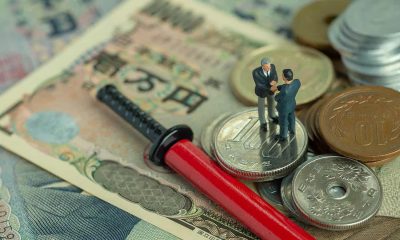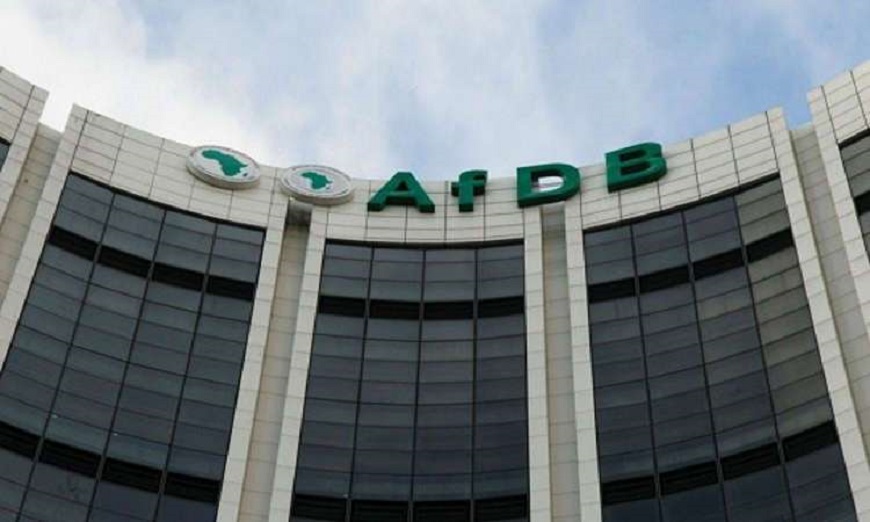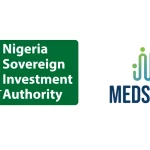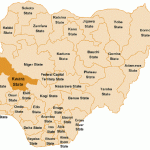World
AfDB Names Headquarters Auditorium After Babacar Ndiaye
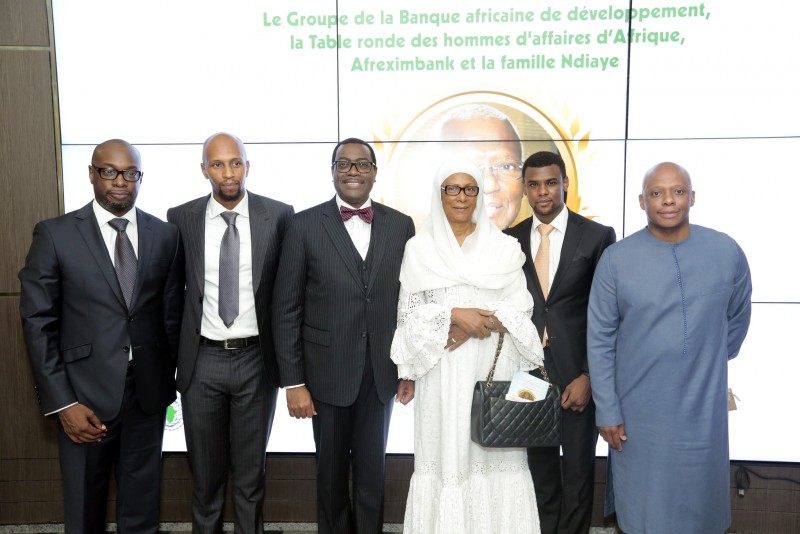
By Modupe Gbadeyanka
President of the African Development Bank (AfDB), Mr Adesina Akinwumi, has announced that the AfDB headquarters auditorium will from now on be named Babacar Ndiaye Auditorium.
Mr Adesina made this announcement at a ceremony honouring Babacar Ndiaye at the organisation’s headquarters in Abidjan.
Babacar Ndiaye, the Bank Group’s fifth elected President, who served two terms between 1985 and 1995, passed away on July 13, 2017 in Senegal.
With Ndiaye’s widow and several children in attendance, as well as former AfDB President Kantinka Dr Kwame D. Fordwor, members of the Senegalese and Ivorian Governments, representatives of the diplomatic corps, and active and retired AfDB staff members. Adesina fondly recalled Babacar Ndiaye’s complete and passionate commitment to the development of Africa.
“He was an AfDB icon, he was a father and mentor to every one of us, and emphatically launched the career of the Bank Group’s current President. He inspired us. In losing him, Africa has lost one of its best sons.”
President Adesina underlined the personal ties between him and his predecessor, recalling that he knew Ndiaye when he worked for the West Africa Rice Development Association (WADRA), which was then based in Bouaké, Côte d’Ivoire.
“Babacar Ndiaye was charismatic, and left an indelible mark on our continent. His legacy is vast, because he always saw the big picture. He was quite simply magnificent,” Adesina stated.
He added, “During the campaign for the AfDB presidency, I naturally went to see him in Dakar. He welcomed me warmly. I took the opportunity to tell him about my vision for the High 5s. He agreed right away, and told me, ‘That’s what Africa needs to transform itself.'”
Arriving at the institution in 1965 as part of the first group of African managers, Ndiaye climbed the organisational ladder to become Division Chief, Director, Vice-President for Finance, and then President in 1985. Babacar Ndiaye was the first AfDB President to be re-elected to a second term of office.
Under his leadership, the pan-African financial institution obtained its first Triple-A rating in 1984.
The former President was the force behind the increase in the Bank’s capital in 1987, which jumped from approximately $6 billion to $23 billion, a 200% increase, after approving the process of opening the Bank’s capital to non-African countries. He was also responsible for bringing the Bank into the international financial market.
“Babacar Ndiaye accomplished tremendous things for the AfDB and for Africa. He always advocated for excellence. He made the AfDB a credible and respected institution internationally,” stated Donald Kaberuka, former AfDB President (2005-2015), in a message read on his behalf by Victor Oladokun, AfDB Director for Communication and External Relations.
Builder of institutions
Beyond his complete commitment to the Bank’s success and providing it with a solid foundation, Babacar Ndiaye helped establish major pan-African institutions, such as the African Import-Export Bank, Afreximbank; Shelter Afrique; and the African Business Roundtable. Representatives of these organizations were specially sent from Cairo, Lagos and Nairobi to attend the tribute ceremony on Thursday.
“Without Babacar Ndiaye, African industry leaders such as Aliko Dangote or Michael Ibru would undoubtedly not be where they are today. Babacar Ndiaye invested his faith and perseverance in Africa’s business community. We will be eternally grateful to him,” said Bamanga Tukur, President of the African Business Roundtable.
Christopher Edordu, founding President of Afreximbank, highlighted Ndiaye’s visionary approach, which allowed him to look beyond the era’s Afro-pessimism and embrace opportunities to finance African businesses.
“It took more than six years to establish Afreximbank. When others abandoned it, Babacar Ndiaye persevered and had patience. He firmly believed in the future of African trade at a time when that belief was not widely shared. Seeing what we have become today, we have to recognize the fact that he was a true visionary,” Edordu explained.
It was not the only time that the AfDB’s fifth elected President was proven right when confronted with naysayers. At a time when housing was not yet central to urban development in Africa, he encouraged the creation of Shelter Afrique, an organisation dedicated to financing affordable housing on the continent.
According to Edmond Adikpe, Shelter Afrique’s regional representative, “Babacar Ndiaye knew how to anticipate. He understood early on that Africa must address the problem of housing. At Shelter Afrique, we are eternally thankful to him for everything he did during our creation and evolution.”
The room was filled with emotion as one speaker followed another, with the audience warmly applauding their words of praise for Babacar Ndiaye, who remains the only President in AfDB history to have risen through the ranks of the organisation.
“He was installed as President in 1985 at the Abidjan Congress Centre in the presence of then Ivorian President Félix Houphouët-Boigny, who held the African Development Bank in high esteem,” recalled Paul Morisho Yuma, former AfDB Secretary General, drawing a standing ovation from the audience.
“Senegal is proud of you”
Although he devoted his life to Africa, Babacar Ndiaye never forgot Senegal, his country of origin. According to the Senegalese Budget Minister, Birima Mangara, AfDB Governor for Senegal, who flew in from Dakar to attend this ceremony, Ndiaye contributed significantly to the development of bilateral cooperation between his country and the Bank. “Between 1972 and now, the AfDB has invested close to 1,400 billion CFA francs in Senegal. We owe that to all of you here, but in particular to Babacar Ndiaye.
“Senegal is proud of you as a son. Babacar Ndiaye is not gone; he is still present in the depths of Africa. We hear his breath in an Africa on the move,” added the Senegalese Budget Minister, paraphrasing the poet Birago Diop.
In attendance, Ndiaye’s widow, Marlyne Ndiaye, nodded her head in agreement, with tears in her eyes. Arriving in Abidjan in 1965, Babacar Ndiaye developed a special relationship with Côte d’Ivoire, home of the Bank’s headquarters. No fewer than three Ivoirian Ministers were present in the AfDB auditorium this week.
“He was a friend of Côte d’Ivoire. We all miss Babacar Ndiaye. President Alassane Ouattara misses him, having known him well and greatly appreciated him. He was a roving ambassador for African development,” agreed François Albert Amichia, Minister of Sports and Leisure, who led the Ivorian Government delegation.
His memory lives on
Alassane Ndiaye, son of the deceased, spoke on behalf of his family. He first thanked the Bank for taking the initiative to hold the ceremony to honour and pay tribute to his father. “The entire family is proud of and thankful for this ceremony. What you have done today touches us deeply and we thank you from the bottom of our hearts,” said the Ndiaye family’s spokesman, in a voice filled with emotion.
He urged those present to pursue the trail blazed by his father.
“He wanted the best for Africa. He believed in and loved the idea of a better Africa. Let’s continue to work for a better future for our continent. That would be the best and most unique way to perpetuate his hopes and his memory,” continued Alassane Ndiaye.
“Replacing darkness with light, well-nourished and healthy children, free flow of goods, people and ideas throughout the continent, and restoring hope to the hopeless – these were the ideals to which President Babacar Ndiaye dedicated his life. The work to realize these dreams continues in the High 5s,” declared AfDB Senior Vice-President Charles Boamah at the ceremony’s conclusion.
Last July, a high-level delegation from the Bank, led by Charles Boamah, along with Vice-Presidents Alberic Kacou and Amadou Hott, Acting Vice-President, Finance, Hassatou N’Sele, and Director of Special Projects Sipho Moyo, attended Babacar Ndiaye’s funeral in Dakar.
During a recent visit to the Senegalese capital, President Adesina visited his predecessor’s home to express his sympathy and support his widow and children.
World
Today’s Generation of Entrepreneurs Value Flexibility, Autonomy—McNeal-Weary

By Kestér Kenn Klomegâh
The Young African Leaders Initiative (YALI) is the United States’ signature step to invest in the next generation of African leaders. Since its establishment in 2010 by Obama administration, YALI has offered diverse opportunities, including academic training in leadership, governance skills, organizational development and entrepreneurship, and has connected with thousands of young leaders across Africa. This United States’ policy collaboration benefits both America and Africa by creating stronger partnerships, enhancing mutual prosperity, and ensuring a more stable environment.
In our conversation, Tonya McNeal-Weary, Managing Director at IBS Global Consulting, Inc., Global Headquarters in Detroit, Michigan, has endeavored to discuss, thoroughly, today’s generation of entrepreneurs and also building partnerships as a foundation for driving positive change and innovation in the global marketplace. Here are the excerpts of her conversation:
How would you describe today’s generation of entrepreneurs?
I would describe today’s generation of entrepreneurs as having a digital-first mindset and a fundamental belief that business success and social impact can coexist. Unlike the entrepreneurs before them, they’ve grown up with the internet as a given, enabling them to build global businesses from their laptops and think beyond geographic constraints from day one. They value flexibility and autonomy, often rejecting traditional corporate ladders in favor of building something meaningful on their own terms, even if it means embracing uncertainty and financial risk that previous generations might have avoided.
And those representing the Young African Leaders Initiative, who attended your webinar presentation late January 2026?
The entrepreneurs representing the Young African Leaders Initiative are redefining entrepreneurship on the continent by leveraging their unique perspectives, cultural heritage, and experiences. Their ability to innovate within local contexts while connecting to global opportunities exemplifies how the new wave of entrepreneurs is not confined by geography or conventional expectations.
What were the main issues that formed your ‘lecture’ with them, Young African Leaders Initiative?
The main issues that formed my lecture for the Young African Leaders Initiative were driven by understanding the importance of building successful partnerships when expanding into the United States or any foreign market. During my lecture, I emphasized that forming strategic alliances can help entrepreneurs navigate unfamiliar business environments, access new resources, and foster long-term growth. By understanding how to establish strong and effective partnerships, emerging leaders can position their businesses for sustainable success in global markets. I also discussed the critical factors that contribute to successful partnerships, such as establishing clear communication channels, aligning on shared goals, and cultivating trust between all parties involved. Entrepreneurs must be proactive in seeking out partners who complement their strengths and fill gaps in expertise or resources. It is equally important to conduct thorough due diligence to ensure that potential collaborators share similar values and ethical standards. Ultimately, the seminar aimed to empower YALI entrepreneurs with practical insights and actionable strategies for forging meaningful connections across borders. Building successful partnerships is not only a pathway to business growth but also a foundation for driving positive change and innovation in the global marketplace.
What makes a ‘leader’ today, particularly, in the context of the emerging global business architecture?
In my opinion, a leader in today’s emerging global business architecture must navigate complexity and ambiguity with a fundamentally different skill set than what was previously required. Where traditional leadership emphasized command-and-control and singular vision, contemporary leaders succeed through adaptive thinking and collaborative influence across decentralized networks. Furthermore, emotional intelligence has evolved from a soft skill to a strategic imperative. Today, the effective modern leader must possess deep cross-cultural intelligence, understanding that global business is no longer about exporting one model worldwide but about genuinely integrating diverse perspectives and adapting to local contexts while maintaining coherent values.
Does multinational culture play in its (leadership) formation?
I believe multinational culture plays a profound and arguably essential role in forming the kind of leadership required in today’s global business environment. Leaders who have lived, worked, or deeply engaged across multiple cultural contexts develop a cognitive flexibility that’s difficult to replicate through reading or training alone. More importantly, multinational exposure tends to dismantle the unconscious certainty that one’s own way of doing things is inherently “normal” or “best.” Leaders shaped in multicultural environments often develop a productive discomfort with absolutes; they become more adept at asking questions, seeking input, and recognizing blind spots. This humility and curiosity become strategic assets when building global teams, entering new markets, or navigating geopolitical complexity. However, it’s worth noting that multinational experience alone doesn’t automatically create great leaders. What matters is the depth and quality of cross-cultural engagement, not just the passport stamps. The formation of global leadership is less about where someone has been and more about whether they’ve developed the capacity to see beyond their own cultural lens and genuinely value differences as a source of insight rather than merely tolerating them as an obstacle to overcome.
In the context of heightening geopolitical situation, and with Africa, what would you say, in terms of, people-to-people interaction?
People-to-people interaction is critically important in the African business context, particularly as geopolitical competition intensifies on the continent. In this crowded and often transactional landscape, the depth and authenticity of human relationships can determine whether a business venture succeeds or fails. I spoke on this during my presentation. When business leaders take the time for face-to-face meetings, invest in understanding local priorities rather than imposing external agendas, and build relationships beyond the immediate transaction, they signal a different kind of partnership. The heightened geopolitical situation actually makes this human dimension more vital, not less. As competition increases and narratives clash about whose model of development is best, the businesses and nations that succeed in Africa will likely be those that invest in relationships characterized by reciprocity, respect, and long-term commitment rather than those pursuing quick wins.
How important is it for creating public perception and approach to today’s business?
Interaction between individuals is crucial for shaping public perception, as it influences views in ways that formal communications cannot. We live in a society where word-of-mouth, community networks, and social trust areincredibly important. As a result, a business leader’s behavior in personal interactions, their respect for local customs, their willingness to listen, and their follow-through on commitments have a far-reaching impact that extends well beyond the immediate meeting. The geopolitical dimension amplifies this importance because African nations now have choices. They’re no longer dependent on any single partner and can compare approaches to business.
From the above discussions, how would you describe global business in relation to Africa? Is it directed at creating diverse import dependency?
While it would be too simplistic to say global business is uniformly directed at creating import dependency, the structural patterns that have emerged often produce exactly that outcome, whether by design or as a consequence of how global capital seeks returns. Global financial institutions and trade agreements have historically encouraged African nations to focus on their “comparative advantages” in primary commodities rather than industrial development. The critical question is whether global business can engage with Africa in ways that build productive capacity, transfer technology, develop local talent, and enable countries to manufacture for themselves and for export—or whether the economic incentives and power irregularities make this structurally unlikely without deliberate policy intervention.
World
Russia Expands Military-Technical Cooperation With African Partners

By Kestér Kenn Klomegâh
Despite geopolitical complexities, tensions and pressure, Russia’s military arms and weaponry sales earned approximately $15 billion at the closure of 2025, according to Kremlin report. At the regular session, chaired by Russian President Vladimir Putin on Jan. 30, the Commission on Military and Technical Cooperation with Foreign Countries analyzed the results of its work for 2025, and defined plans for the future.
It was noted that the system of military-technical cooperation continued to operate in difficult conditions, and with increased pressure from the Western countries to block business relations with Russia. The meeting, however, admitted that export contracts have generally performed sustainably. Russian military products were exported to more than 30 countries last year, and the amount of foreign exchange exceeded $15 billion.
Such results provide an additional opportunity to direct funds to the modernization of OPC enterprises, to the expansion of their production capacities, and to advanced research. It is also important that at these enterprises a significant volume of products is civilian products.
The Russian system of military-technical cooperation has not only demonstrated effectiveness and high resilience, but has created fundamental structures, which allow to significantly expand the “geography” of supplies of products of military purpose and, thus strengthen the position of Russia’s leader and employer advanced weapons systems – proven, tested in real combat conditions.
Thanks to the employees of the Federal Service for Military Technical Cooperation and Rosoboronexport, the staff of OPC enterprises for their good faith. Within the framework of the new federal project “Development of military-technical cooperation of Russia with foreign countries” for the period 2026-2028, additional measures of support are introduced. Further effective use of existing financial and other support mechanisms and instruments is extremely important because the volumes of military exports in accordance with the 2026 plan.
Special attention would be paid to the expansion of military-technological cooperation and partnerships, with 14 states already implementing or in development more than 340 such projects.
Future plans will allow to improve the characteristics of existing weapons and equipment and to develop new promising models, including those in demand on global markets, among other issues – the development of strategic areas of military-technical cooperation, and above all, with partners on the CIS and the CSTO. This is one of the priority tasks to strengthen both bilateral and multilateral relations, ensuring stability and security in Eurasia.
From January 2026, Russia chairs the CSTO, and this requires working systematically with partners, including comprehensive approaches to expanding military-technical relations. New prospects open up for deepening military-technical cooperation and with countries in other regions, including with states on the African continent. Russia has been historically strong and trusting relationships with African countries. In different years even the USSR, and then Russia supplied African countries with a significant amount of weapons and military equipment, trained specialists on their production, operation, repair, as well as military personnel.
Today, despite pressure from the West, African partners express readiness to expand relations with Russia in the military and military-technical fields. It is not only about increasing supplies of Russian military exports, but also about the purchase of other weapons, other materials and products. Russia has undertaken comprehensive maintenance of previously delivered equipment, organization of licensed production of Russian military products and some other important issues. In general, African countries are sufficient for consideration today.
World
Trump Picks Kevin Warsh to Succeed Jerome Powell as Federal Reserve Chair
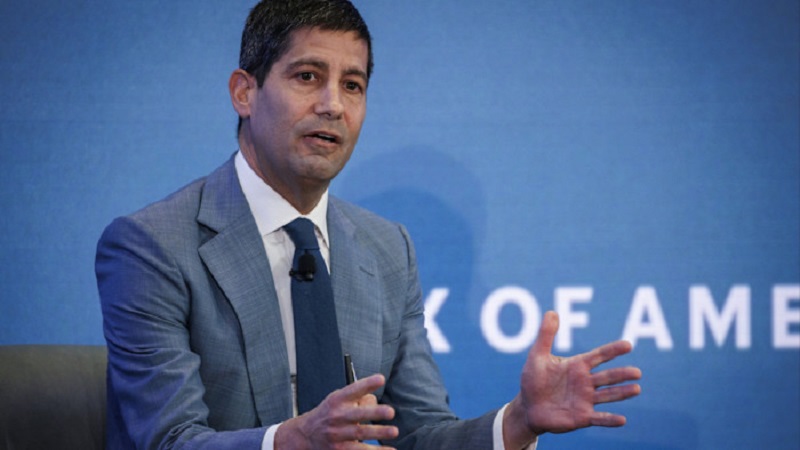
By Adedapo Adesanya
President Donald Trump has named Mr Kevin Warsh as the successor to Mr Jerome Powell as the Federal Reserve chair, ending a prolonged odyssey that has seen unprecedented turmoil around the central bank.
The decision culminates a process that officially began last summer but started much earlier than that, with President Trump launching a criticism against the Powell-led US central bank almost since he took the job in 2018.
“I have known Kevin for a long period of time, and have no doubt that he will go down as one of the GREAT Fed Chairmen, maybe the best,” Mr Trump said in a Truth Social post announcing the selection.
US analysts noted that the 55-year old appear not to ripple market because of his previous experience at the apex bank as Governor, with others saying he wouldn’t always do the bidding of the American president.
If approved by the US Senate, Mr Warsh will take over the position in May, when Mr Powell’s term expires.
Despite having argued for reductions recently, “Warsh has a long hawkish history that markets have not forgotten,” one analyst told Bloomberg.
President Trump has castigated Mr Powell for not lowering interest rates more quickly. His administration also launched a criminal investigation of Powell and the Federal Reserve earlier this month, which led Mr Powell to issue an extraordinary rebuke of President Trump’s efforts to politicize the independent central bank.
-

 Feature/OPED6 years ago
Feature/OPED6 years agoDavos was Different this year
-
Travel/Tourism9 years ago
Lagos Seals Western Lodge Hotel In Ikorodu
-

 Showbiz3 years ago
Showbiz3 years agoEstranged Lover Releases Videos of Empress Njamah Bathing
-

 Banking8 years ago
Banking8 years agoSort Codes of GTBank Branches in Nigeria
-

 Economy3 years ago
Economy3 years agoSubsidy Removal: CNG at N130 Per Litre Cheaper Than Petrol—IPMAN
-

 Banking3 years ago
Banking3 years agoSort Codes of UBA Branches in Nigeria
-

 Banking3 years ago
Banking3 years agoFirst Bank Announces Planned Downtime
-

 Sports3 years ago
Sports3 years agoHighest Paid Nigerian Footballer – How Much Do Nigerian Footballers Earn


